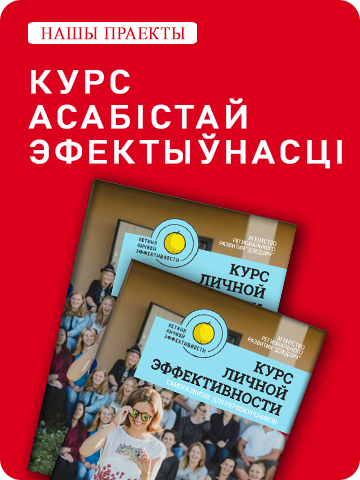Дзедзіч пачынае ладзіць конкурс для ўсіх жадаючых паспрабаваць сябе ў якасці перакладчыка. Замежная класіка па-беларуску!
Шмат перакладаў твораў замежнай літаратуры ў нашай краіне робіцца спачатку на рускую мову, а ўжо з яе, час ад часу, перакладаюць і на беларускую. З-за такіх недарэчнасцяў губляецца прыгажосць літаратуры і мы часта не можам зразумець, чаму той ці іншы твор увайшоў у скарбніцу класікі сусветнай літаратуры. А перакладамі адразу на родную мову мала хто займаецца.
Таму “Дзедзіч” прапаноўвае ўсім жадаючым стаць пад час конкурсу сапраўднымі перакладчыкамі і паспрабаваць перакласці з ангельскай мовы на беларускую пэўны ўрывак з апавядання Дж. Ф. Купера “Апошні з магіканаў” (урывак прыведзены ніжэй).
Аўтара самага таленавітага перакладу чакае галоўны прыз – цікавая кніга, а іншых удзельнікаў – памятныя прызы ад арганізатараў. Свае працы можна дасылаць да 25 верасня на [email protected]. У лісце з перакладам трэба абавязкова пазначыць сваё прозвішча і імя, а так сама кантактны тэлефон і e-mail.
З 25 па 29 верасня, журы конкурсу (у складзе прафесійных лінгвістаў) будзе ацэньваць дасланыя працы і абіраць пераможцаў. Вынікі будуць вядомы – 30 верасня.
Конкурс пачынаецца! Per aspera ad astra!
Урывак:
“She is here,” he whispered, “and by that door you will find her. I would have spoken a word of comfort to the afflicted soul; but the sight of such a monster might upset her reason. Though for that matter, Major, you are none of the most inviting yourself in your paint.”
Duncan, who had already swung eagerly forward, drew instantly back on hearing these discouraging words.
“Am I, then, so very revolting?” he demanded, with an air of chagrin.
“You might not startle a wolf, but I have seen the time when you had a better favored look; your streaked countenances are not ill-judged of by the squaws, but young women of white blood give the preference to their own color. See,” he added, pointing to a place where the water trickled from a rock, forming a little crystal spring.
The deliberate woodsman had little occasion to hunt for arguments to enforce his advise. He was yet speaking when Duncan availed himself of the water. In a moment every frightful or offensive mark was obliterated, and the youth appeared again in the lineaments with which he had been gifted by nature. Thus prepared for an interview with his mistress, he took a hasty leave of his companion, and disappeared through the indicated passage. The scout witnessed his departure with complacency, nodding his head after him, and muttering his good wishes.
Duncan had no other guide than a distant glimmering light, which served, however, the office of a polar star to the lover. By its aid he was enabled to enter the haven of his hopes, which was merely another apartment of the cavern, that had been solely appropriated to the safekeeping of so important a prisoner as a daughter of the commandant of William Henry. It was profusely strewed with the plunder of that unlucky fortress. In the midst of this confusion he found her he sought, pale, anxious and terrified, but lovely. David had prepared her for such a visit.
“Duncan!” she exclaimed, in a voice that seemed to tremble at the sounds created by itself.
“Alice!” he answered, leaping carelessly among trunks, boxes, arms, and furniture, until he stood at her side.
“I knew that you would never desert me,” she said, looking up with a momentary glow on her otherwise dejected countenance. “But you are alone! Grateful as it is to be thus remembered, I could wish to think you are not entirely alone.”
Duncan, observing that she trembled in a manner which betrayed her inability to stand, gently induced her to be seated, while he recounted those leading incidents which it has been our task to record. Alice listened with breathless interest; and though the young man touched lightly on the sorrows of the stricken father; taking care, however, not to wound the self-love of his auditor, the tears ran as freely down the cheeks of the daughter as though she had never wept before. The soothing tenderness of Duncan, however, soon quieted the first burst of her emotions, and she then heard him to the close with undivided attention, if not with composure.
“And now, Alice,” he added, “you will see how much is still expected of you. By the assistance of our experienced and invaluable friend, the scout, we may find our way from this savage people, but you will have to exert your utmost fortitude. Remember that you fly to the arms of your venerable parent, and how much his happiness, as well as your own, depends on those exertions.”
“Can I do otherwise for a father who has done so much for me?”
“And for me, too,” continued the youth, gently pressing the hand he held in both his own.
The look of innocence and surprise which he received in return convinced Duncan of the necessity of being more explicit.
“This is neither the place nor the occasion to detain you with selfish wished,” he added; “but what heart loaded like mine would not wish to cast its burden? They say misery is the closest of all ties; our common suffering in your behalf left but little to be explained between your father and myself.”
“And, dearest Cora, Duncan; surely Cora was not forgotten?”
“Not forgotten! No; regretted, as woman was seldom mourned before. Your venerable father knew no difference between his children; but I – Alice, you will not be offended when I say, that to me her worth was in a degree obscured.”
“Then you knew not the merit of my sister,” said Alice, withdrawing her hand; “of you she always speaks as of one who is her dearest friend.”
“I would gladly believe her such,” returned Duncan, hastily; “I could wish her to be even more; but with you, Alice, I have the permission of your father to aspire to a still nearer and dearer tie.”
Поспехаў!!





